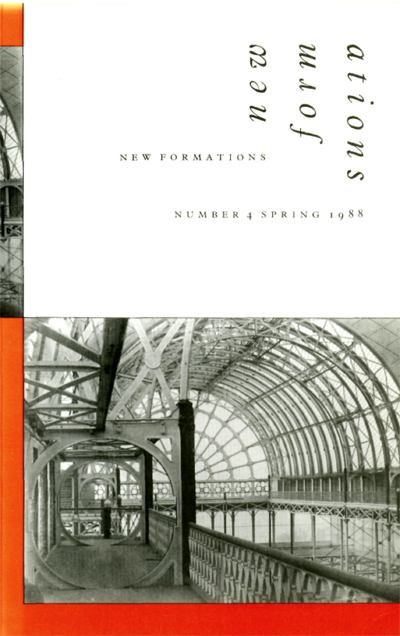
Entertainment, or the policing of virtue
New Formations - ISSN 0950-2378
Volume 1988 Number 4
Entertainment, or the policing of virtue
Colin Mercer pages -
Abstract
Mercer looks at the distinction between entertainment and amusement in Victorian literature and culture, considering the popular works which massively outsold Dickens and Eliot. Foucualt’s ideas about moral policing are invoked alongside popular Victorian ideas of topography and phrenology. Eugene Sue’s Les Mysteres de Paris is discussed, and Umberto Eco’s assertion that it is a ‘closed text’ with a ‘predetermined response’ built in is questioned via a discussion of the roman feuilleton, a kind of serialised novel incorporating reader responses and closely tied to real-world events. The role of different reading contexts is considered and reading out loud within the family is seen as central to the construction of Dickens’ works. Meanwhile, the interpretive and informative potential of illustrations is considered as a counterpart to the power of text.
SORRY - you are not registered as being permitted online access to the full text of this article
You have the following options:
- If you are viewing this via an institution or academic library you can ask that your institution takes out a Subscription to this journal.
- If you already have a Personal Subscription please login below
Forgotten your username / password? Click here to locate
- Purchase an annual Personal Subscription
PRINT + DIGITAL personal subscription (£45 / year)
DIGITAL personal subscription (£30 / year)
A Personal Subscription provides immediate access not only to the single article you are seeking, but also to all past and future articles in this journal up to the expiry of your annual (calendar year) subscription. - Purchase immediate access to this single article (UK£7.00) - Buy article Coming Soon
To cite this article
Colin Mercer (1988) Entertainment, or the policing of virtue, New Formations, 1988(4), -
